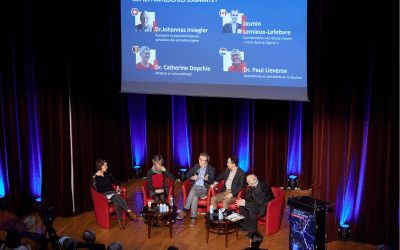On February 27, a European Charter on Advanced Age was published to promote consideration for older persons. This charter intends to challenge the candidates in the upcoming European elections, (May 23-26) to give older people an appropriate and dignified place in today’s society.
The charter was drafted by influential persons and doctors from various associations and academics who involved in inclusion and autonomy issues. Their leitmotiv is to “fight against ageism as a means of discrimination and stigmatization.”
Among the people who signed the charter are Grégoire Bellut (from Alternative Collective Lodging), Edouard de Hennezel (founder of the Vulnerability and Society Circle), Alain Villez (President of the Little Brothers of the Poor), etc. They personally endorse the charter, independently of their organizations. As director of the Association of Directors to Serve the Elderly, known in France as “AD-PA”, Romain Gizolme, insists on the fact that the general public is unaware of age discrimination. It is “poorly known, poorly identified and underestimated. Nevertheless ageism is very prevalent in the work world “. They suggest including « a complete overhaul for inter-generational policies” in the candidates platform for the upcoming European Parliamentary elections.
On February 25, at least 4000 members of the French Society of Geriatrics and Gerontology (SFGG) signed an editorial entitled “We are all older than someone”. They hope that “one day social norms will be rectified, as they were for sexism and racism.”
Also campaigning for equal rights in European policies is the AGE Platform Europe, who published 7 key recommendations to protect the rights of Europeans at any age. In 2010, a European Manifesto on the Rights and Responsibilities of Older Persons in Need of Long-Term Care was developed as part of the European Commission’s Daphne III program.
A major issue in the coming decades will be dependency or loss of autonomy, especially for the elderly. In a society driven by utility and profitability, some describe these changes as a form of “social euthanasia” for older persons.
Social cohesion will be unattainable without attributing a place for old age at the heart of society. A report published in 2016 underlines that “ageing on the high end of the scale” or longer life expectancy goes with “ageing from the lower end” or lowering of the fecundity of almost the whole planet. Thus to avoid risking a breach in the dynamics of intergenerational solidarity, future policies need to take these two phenomena into account.



